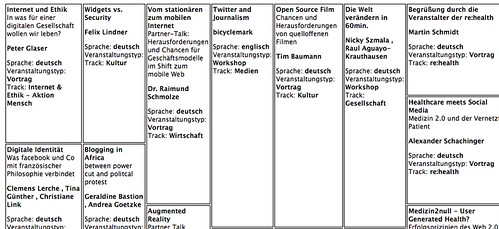 The last night of February 2010 has me looking forward and asking the difficult questions about just what I’m going to focus on, push myself to do that is new and innovative, and where I will take this here journalistic project as the year matures. What topic in what corner of the world do I feel needs better coverage, more explaining, and increased understanding on the international scale? What can I do? What is within my power, as a reporter with connections or in terms of making new contacts- to get more information to present to you reading this.
The last night of February 2010 has me looking forward and asking the difficult questions about just what I’m going to focus on, push myself to do that is new and innovative, and where I will take this here journalistic project as the year matures. What topic in what corner of the world do I feel needs better coverage, more explaining, and increased understanding on the international scale? What can I do? What is within my power, as a reporter with connections or in terms of making new contacts- to get more information to present to you reading this.
Naturally for the sake of learning and first hand reporting, I want to do more than bring you information from the comfort of my always interesting Amsterdam life… I want to travel. Nevermind wanting, when you’ve got family and a life in 2 other countries besides the one you dwell in, travelling isn’t a luxury it is a necessity somewhere behind food, shelter, and clothing on the life-list of what is needed. But while I’d normally be looking at flights to Portugal for the spring or summer to visit my family and take care of my responsibilities there, this year presents a bigger challenge than ever in the last 8+ years. While I’d like to fly off to New York to visit family and speak at The Next Hope this July, again looking at the options, it is looking increasingly unlikely.
Whether it is for good reasons or not, airlines across the board are raising their prices. With flights within Europe and crossing the Atlantic (that I know of) costing double what they did last year. And combined with a general decrease in my already extra-modest income this year, even flying at normal rates would have posed a budgetary challenge for this alternative voice in the media wilderness.
All this to say, suddenly the road ahead looks foggier than I had expected. And while ironically I’ll soon announce several exciting journeys to new corners of the globe, those will be funded by third parties. Because the truth is the combination of my intercontinental life choices, journalistic goals, and an economy that sees little monetary value in what I (or anyone these days) do.. makes for a very difficult road ahead.
What’s the plan then? I’m working on it…
 So it might come as a surprise and certainly ironic when I tell you I hated
So it might come as a surprise and certainly ironic when I tell you I hated  At one point in
At one point in 
 RSF points out that economic prosperity does not equal a freer press, with the United States coming in at 36th tied with nations like South Africa and Bosnia. Or everyone’s favorite economic powerhouse, China, which comes in at 167.. a number one can only hope will be influenced somewhat this coming year as the government is said to be implementing
RSF points out that economic prosperity does not equal a freer press, with the United States coming in at 36th tied with nations like South Africa and Bosnia. Or everyone’s favorite economic powerhouse, China, which comes in at 167.. a number one can only hope will be influenced somewhat this coming year as the government is said to be implementing  In preperation for this event I’ve been stepping up my own research into the global food production system over the past 100 years and the current breakdown it is experiencing.? Although the conference is Europe focused, I’m finding alot of useful and I would argue, applicable examples and analysis from North American news sources.
In preperation for this event I’ve been stepping up my own research into the global food production system over the past 100 years and the current breakdown it is experiencing.? Although the conference is Europe focused, I’m finding alot of useful and I would argue, applicable examples and analysis from North American news sources.